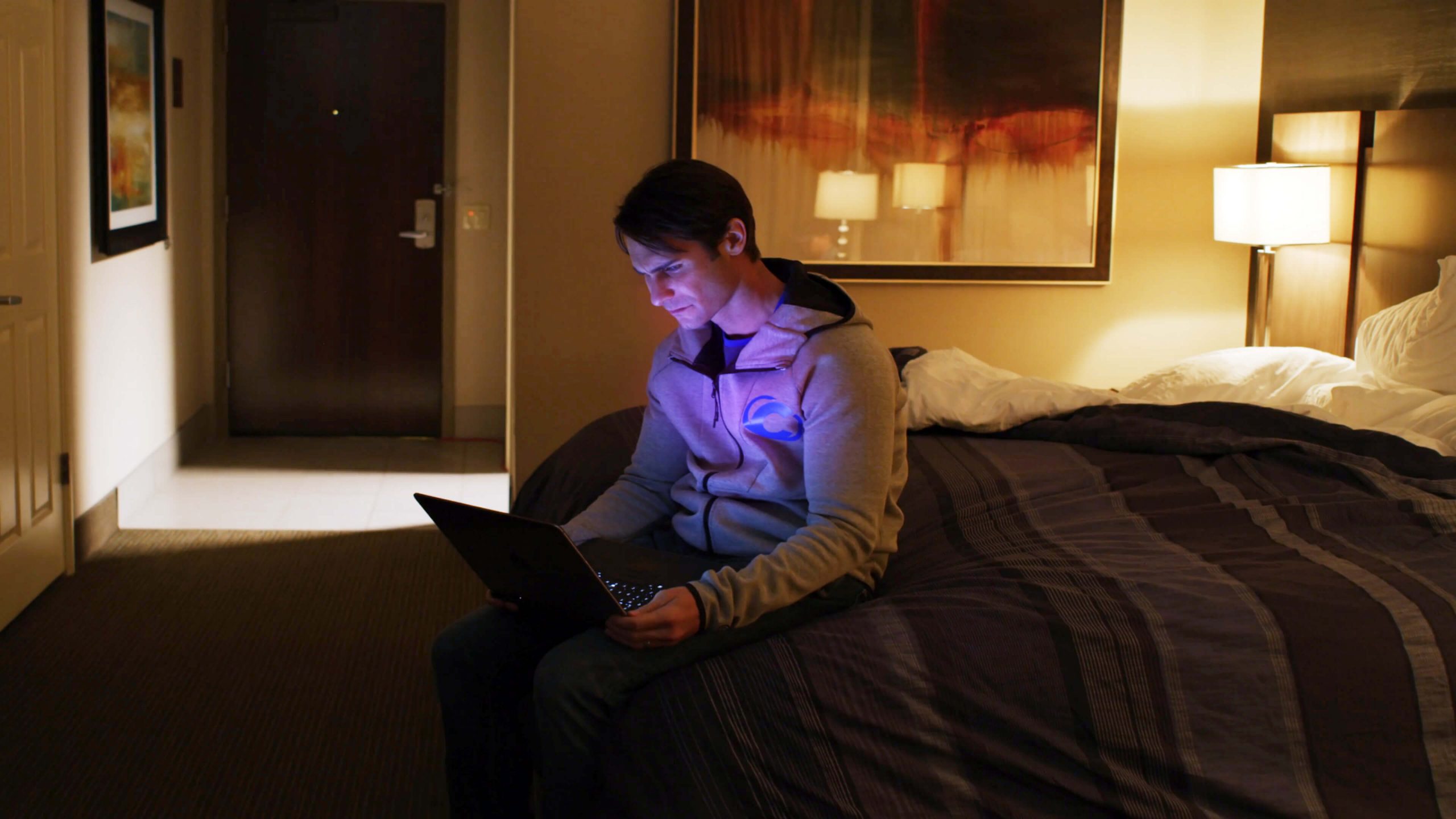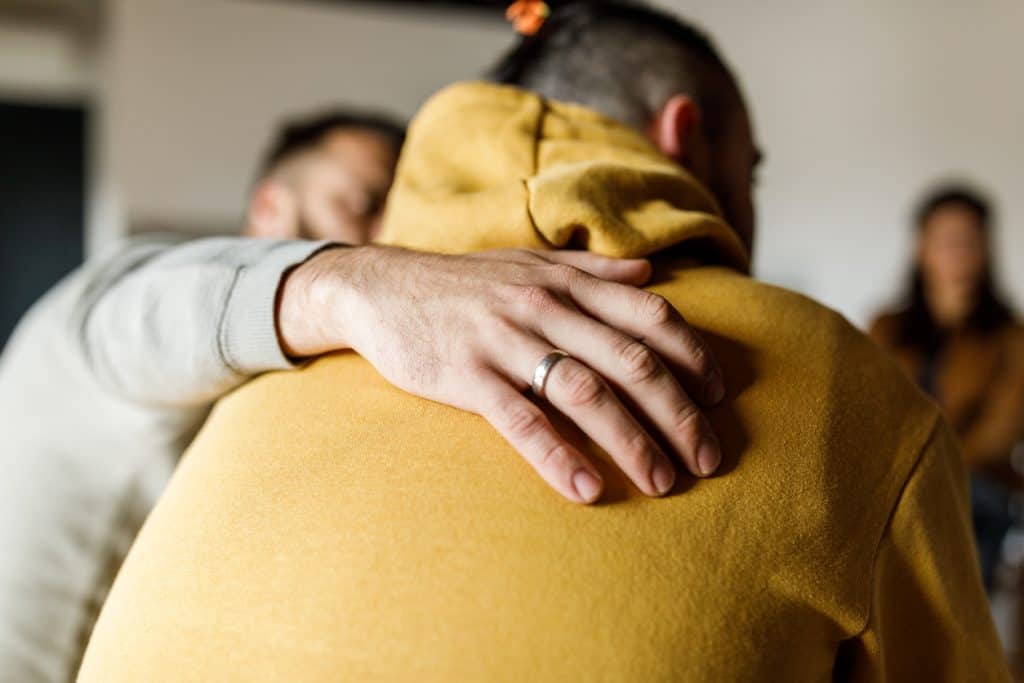Is there a connection between watching porn and anxiety? Perhaps you’ve been experiencing anxiety and have wondered if it’s related to your porn habit. Maybe you’ve noticed a friend or loved one who seems especially anxious, and you’re concerned that porn might be causing it.
Let’s take a look at the research to learn more about the relationship between porn and anxiety. Before we do that, let’s make sure we’re clear—what do we mean by anxiety? The Mayo Clinic explains:
Experiencing occasional anxiety is a normal part of life. However, people with anxiety disorders frequently have intense, excessive and persistent worry and fear about everyday situations. Often, anxiety disorders involve repeated episodes of sudden feelings of intense anxiety and fear or terror that reach a peak within minutes (panic attacks).¹
So, when we talk about porn and anxiety, we’re talking about intense, excessive, persistent worry and fear in everyday life. Does porn contribute to this in any way?
Many former porn users say it does. Members of the porn recovery forum NoFap reported a decrease in anxiety after going without porn and masturbation for a period of time.²
We should be cautious about jumping to conclusions based on anecdotal evidence. However, researchers have begun asking similar questions about the connection between anxiety and porn. There’s a growing mountain of evidence suggesting porn does—at least in some cases—contribute to anxiety.
Article at a Glance:
The Correlation of Watching Porn With Anxiety
Dr. Gregory Jantz writes in his book The Anxiety Reset:
It’s impossible to look for the causes of anxiety—and choose effective treatments—without also addressing harmful substance use habits and addictions. The two are intertwined and mutually reinforce one another… however, substance use isn’t the only impulse-control disorder that can lead to increased risk of crippling anxiety. “Process” addictions include things like pornography…”³
Counselor and researcher Jay Stringer found that 47% of those who struggled with unwanted sexual behaviors (including, but not limited to porn) indicated higher than usual levels of anxiety.4
In 2020, researchers at Steubenville University wanted to explore the connection between porn and mental health. They conducted an anonymous survey of over 1,000 students and asked questions about their porn use. How long had they been viewing it? How often?
The results showed that over 56% identified as lifetime porn users. Of these lifetime porn users, 20% reported severe or extremely severe levels of anxiety—significantly higher than the rest of the student population.5
Certainly, the data doesn’t determine whether anxious people look at porn or if porn makes people anxious. Nonetheless, it demonstrates a strong correlation between watching porn and anxiety.
However, there’s evidence we can look at to get deeper insight into the nature of this connection between porn and anxiety.
For a look at the connection between pornography and other areas of mental health, see here.
Why a Pornified Culture Can Cause Anxiety
We live in a pornified culture. Porn is readily accessible on electronic devices by people of all ages. Major corporations have pushed to make porn more mainstream and socially acceptable.
Evidence indicates that this pornified culture contributes to anxiety. Here are two big reasons for this.
1. Early exposure to porn can be traumatic.
Part of pornified culture is exposure to porn at increasingly young ages. Pre-adolescent children are still developing mentally and emotionally and are not prepared for the shock of porn exposure. Recovery expert John Fort writes:
In the case of online pornography in particular, the developing brains of young people are affected more strongly than that of adults… In one study of men and women who were in pornography recovery programs as adults, their average age of first exposure was found to be 9.66 years old for girls and 9.95 years old for boys. That is awfully young to be exposed to hard-core video porn, which is what kids find these days.
This kind of exposure can be highly traumatic, and the connection between childhood sexual trauma and anxiety later in life is well-attested in psychological literature.6 Therefore, it follows that early exposure to porn can cause anxiety.
2. Porn culture is negatively shaping sexual beliefs and practices.
There is strong evidence indicating that porn leads people to engage in unhealthy and dangerous sexual activities. In 2012, researchers surveyed the literature and wrote “The Impact of Internet Pornography on Adolescents: A Review of the Research.”
[D]ata suggest that adolescents are being exposed to sexually explicit material and engaging in a variety of sexual behaviors; some of which are considered risky and problematic.7
The last ten years show a continuation of this trend, and studies continue to note the strong connection between porn use and problematic behaviors.8 These behavioral patterns put young people at higher risk for anxiety.
One problematic behavior that directly causes anxiety in others is “sexploitation”—creating and sharing pornographic content without someone’s consent. A study found that victims of sexploitation suffered high levels of anxiety, which included fear of going out in public, fear of relationships, fear of applying to jobs, fear of seeking help, and general feelings of anxiety.9
Scruples About Porn Lead to Anxiety
Recently, studies have examined the connection between “scrupulosity” (the fear that your actions may be a sin or contradict your religious beliefs) and anxiety for porn users. While other research indicates a clear connection, these studies show that the chief cause of anxiety among porn users seems to be their beliefs about porn.10
Believing porn is wrong and watching anyway increases the correlation between porn use and anxiety.11 It makes sense: if you’re doing something you think is wrong, you’re going to feel unsettled. This is especially true with a habit that’s usually carried out in secret, like porn use.
For more, see How Scrupulosity Can Affect Porn Users.
Why We Shouldn’t Get Rid of Scruples About Porn
A few years ago, Covenant Eyes conducted a survey of our members. We asked them why they used our accountability survey. The number one reason was their relationship with God. For people who are serious about their relationship with God, anything that hinders their faith is a major concern. For someone who feels that porn is keeping them from God, this indeed is a cause for anxiety.
For many, the answer seems simple: get rid of these unnecessary scruples about porn. Embrace it. Stop being prudish and old-fashioned and accept porn as another blessing of living in the 21st century.
But is this the correct approach? If studies showed that believing drunkenness was wrong made alcoholics anxious, would the correct solution be to assure them they were OK to just keep drinking? While “scrupulosity” may increase anxiety, there are very good reasons for why people believe porn is wrong. It should be cause for concern.
Here are four reasons why.
Porn perpetuates violence towards women and negative stereotypes.
There’s good evidence to believe that porn changes the way people think about women. Matt Fradd explains:
When it comes to porn, the brain naturally imagines the viewer in the pornographic scene. When a man is turned on by porn his body is not merely responding to the naked woman. His brain is picturing himself as the main character, heightening the arousal.
So then, when someone watches pornographic scenes of violence and misogyny, it feels like they’re participating. As a result, Drs. Dolf Zillmann and Jennings Bryant found that watching porn makes people more likely to trivialize rape.
The porn industry is connected with sex trafficking.
Researchers and concerned advocates have noted the connection between porn and sex trafficking for many years. Recently, investigations into big porn companies have revealed some of the gruesome details of this connection.
Porn causes erectile dysfunction.
We have written extensively on Porn Induced Erectile Dysfunction (PIED). There’s a shocking body of evidence to indicate an epidemic of young men experiencing PIED as a result of too much porn.
If you or someone you love is suffering from PIED, we’ve created “RecoverED: 10 Days on the Road to Healing from Porn-Induced Erectile Dysfunction.“ This is a great way to learn more and jumpstart the recovery process.
Porn damages relationships.
Covenant Eyes author Moriah Bowman explains the effect porn has on relationships:
Porn replaces real sex with heavily edited, unrealistic, fake sex. This creates a false expectation of sex with your partner. In 2012, a study through the American Psychological Association found that those who viewed pornography had lower levels of commitment to their romantic partners than those who didn’t. It also confirmed that porn consumption was positively related to infidelity.
Many other studies corroborate the damaging effect that pornography has on relationships. For more details, see “Porn in Marriage: Its Harmful Effects on Relationships (and How to Heal).“
What Should an Anxious Porn User Do?
Philippians 4:6 instructs us, “Do not be anxious about anything, but in every situation, by prayer and petition, with thanksgiving, present your requests to God.”
If you or someone you love is experiencing porn-related anxiety, there’s a clear path forward. You can break free from porn and get it out of your life for good. Covenant Eyes is here to help!
We have many free resources to get you started, including Dr. Doug Weiss’s article, “How to Quit Porn: 6 Essential Steps.“
¹Mayo Clinic, “Anxiety Disorders,” accessed December 30 2021. https://www.mayoclinic.org/diseases-conditions/anxiety/symptoms-causes/syc-20350961
²NoFap, accessed December 30 2021. https://www.reddit.com/r/NoFap/comments/qtfqyb/will_nofap_help_reduce_depression_and_anxiety/
³Gregory Jantz, The Anxiety Reset: A Life-Changing Approach to Overcoming Fear, Stress, Worry, Panic Attacks, OCD and More (Carol Stream, IL: Tyndale House Publishers, 2021). Accessed December 30 from https://www.google.com/books/edition/The_Anxiety_Reset/edTxDwAAQBAJ?hl=en&gbpv=1&printsec=frontcover/
4 Jay Stringer, Unwanted: How Sexual Brokenness Reveals Our Way to Healing (Colorado Springs: NavPress, 2018), 98.
5 C. Camilleri, J.T Perry, and S. Sammut, “Compulsive Internet Pornography Use and Mental Health: A Cross-Sectional Study in a Sample of University Students in the United States,” Frontiers in psychology 11 (2021). https://doi.org/10.3389/fpsyg.2020.613244
6 M. De Venter, K. Demyttenaere, R. Bruffaerts, “Het verband tussen traumatische gebeurtenissen in de kindertijd en angst, depressie en middelenmisbruik in de volwassenheid; een systematisch literatuuroverzicht” [The relationship between adverse childhood experiences and mental health in adulthood. A systematic literature review]. Tijdschr Psychiatr 5,5 (2013):259-68. https://pubmed.ncbi.nlm.nih.gov/23595840/
7 E. Owens, R. Behun, J. Manning, and R. Reid, “The Impact of Internet Pornography on Adolescents: A Review of the Research,” Sexual Addiction & Compulsivity 19 (2012):99–122. http://www2.psych.utoronto.ca/users/tafarodi/psy427/articles/Owens%20et%20al.%20(2012).pdf
8 E. Andrie, I. Sakou, E. Tzavela, C. Richardson, & A. Tsitsika, “Adolescents’ Online Pornography Exposure and Its Relationship to Sociodemographic and Psychopathological Correlates: A Cross-Sectional Study in Six European Countries,” Children (Basel, Switzerland), 8 (2021). https://doi.org/10.3390/children8100925
9 J. Campbell, S. Poage, S. Godley, & E. Rothman, “Social Anxiety as a Consequence of Non-Consensually Disseminated Sexually Explicit Media Victimization,” Journal of Interpersonal Violence, (October 2020). https://doi.org/10.1177/0886260520967150.
10 N. Borgogna, J. Duncan, & R. McDermott, “Is scrupulosity behind the relationship between problematic pornography viewing and depression, anxiety, and stress?,” Sexual Addiction & Compulsivity 25 (2018), 293-318. https://doi.org/10.1080/10720162.2019.1567410
11 R. Guidry, C. Floyd, & F. Volk, “The Exacerbating Impact of Moral Disapproval on the Relationship Between Pornography Use and Depression, Anxiety, and Relationship Satisfaction”, Journal of Sex & Marital Therapy 46 (2020). https://www.tandfonline.com/doi/abs/10.1080/0092623X.2019.1654579








I have suffered from pornography for 40 years. With the help of covenant eyes and going to group meetings and working my 12 steps I’ve been able to be free from porn for six years now. I have also suffered for many years from anxiety. I mean severe anxiety. The anxiety was so bad at times I felt like I was going to black out. Now it all makes sense. How my porn addiction and anxiety was related. Being sober now for six years my mind my body has felt an unbelievable peace. It feels good. Anyone that reads this post And is suffering from both pornography and anxiety, I assure you it’s related. Get some help. I got help and it’s the best thing I ever did. The unbelievable peace I have in my life is so worth it. Please don’t get discouraged. It doesn’t happen right away. But if you stick with the program and do the work. Trust me you will have peace as I have found.